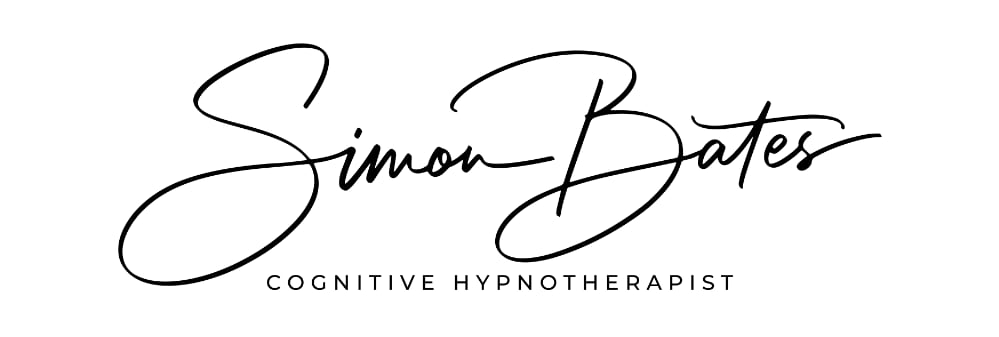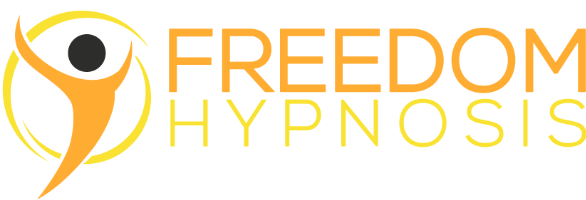
I specialise in helping people to recover from anxiety, depression or trauma.
Depression
Learned helplessness and hopelessness define this condition and prevents the client from taking simple actions that would improve their condition. There are effective treatments without drugs and for those that respond poorly to drug treatment.
Panic attacks and anxiety
Panic attacks and anxiety are debilitating and prevent people from enjoying their lives. The future is perceived as being unjustifiably threatening with the client unable to stop worrying. Hypnotic treatments can reset this over-sensitivity and restore peace of mind.
Helping You Achieve Success
Unlock your full potential by taking the brakes off
Negative experiences, whether recent or in childhood, train us to expect nothing better. We develop unconscious patterns of avoidance from relationships, careers or just simple ambition.
Put bad relationships behind you and move forward.
Reduce anxiety so that you can enjoy things others find easy.
Reduce the impact of anxiety on your physical health.
Eliminate coping strategies like over-eating or other addictions.
Overcome social anxiety or life-limiting phobias.
Overcome work-worry and restore enjoyment and ambition.
COVID/Health anxiety
Overly worried about you or a family member catching COVID or another life-threatening disease? Can’t shake the thought that you might have a serious health condition despite negative tests and medical reassurance?
EMDR/IEMT & EMI
Eye movement treatments are all the rage. These treatments are incredibly fast for trauma and some emotional problems like guilt and shame. Years’ worth of problems can be dissolved in a single session.
Sleep problems (insomnia)
Poor sleep leads to low energy and poor mental and physical health. There are many factors that contribute to insomnia, especially anxiety. Click below for information on the main solutions.
Relationship problems
Struggling to get over the emotions of a bad break-up? Or trying to save a relationship but struggling to get-over resentments, jealousy and events such as cheating or arguments.
What is Cognitive Hypnotherapy?
How is it different from other therapies?
Cognitive hypnotherapy is a modern, brief, therapy for a number of common psychological conditions. In addition to Cognitive Behavioural Therapy (CBT) it is the only other type of therapy, that I’m aware of, that has been shown to be clinically effective against depression and anxiety, it creates change more rapidly and has a better success rate than CBT.
Cognitive hypnotherapy has a number of treatment styles that can adapt to the clients needs. Cognitive hypnotherapists use the same methodology and values and are accredited by the National Council of Hypnotherapy. Full membership requires supervision for at least three years of client centred work.
How many sessions will I need?
I don’t offer never-ending therapy. For most clients with depression and anxiety conditions, I aim for 3-4 sessions with noticeable improvements from each session. Mood is measured each session so you can see improvements over each week. For other conditions, please ask. Some work, such as a phobia, is usually a single session.
Is hypnosis safe?
Hypnosis is completely safe. Millions of people have been harmed by the unnecessary over-prescription of anti-depressants/anti-anxiety medication. Nobody has ever been harmed by hypnosis.
In many cases, the more remedial work (removing problems) is done through more rapid cognitive styles of work. When adding more positive things like confidence, I typically record this work for you for multiple listening at a time of your choosing, so we don’t take up valuable session time. I work with many clients online and internationally; having the more hypnotic work pre-recorded for you prevents problems of dropped connections and are often better quality than can be achieved in the session. We may or may not do formal hypnosis in the session, depending upon what you need.
What is hypnosis?
Hypnosis is the utilisation of various specific focused mental states for the purpose of changing unconscious habits and emotional responses. It’s not dissimilar to a day-dream experience, just more deliberate and guided.
The relaxing, internally focused, hypnotic process seems to put the brain into ‘maintenance’ or ‘REM’ mode which makes changes easier to achieve and without resistance. Essentially we are using the brain’s own method of consolidating new material in the hypnotic session.
Can everybody be hypnotised?
Since most problems are caused by unwanted trance processes such as ‘worrying’, the worse the problem, the more likely you are to be able to go into deeper hypnotic states.
It can be difficult to create deep, formal trance states with some clients, but it doesn’t matter, we’ll usually get to the same end using other means. I commonly use multiple types of treatment in the same session so we can see what type of treatment works best for you.
Is hypnosis suitable for everybody?
People with epilepsy are not recommended to have formal, relaxing, hypnosis since it can trigger fitting. We may be able to do other types of work however that create the same change. Clients suffering from psychosis or BPD are often not suitable hypnosis clients, although such people often go through multiple and contradictory diagnostic labels over their lives.
About Me
I have over twenty years experience of hypnosis and hypnotic techniques together with a degree in cognitive science which enable me to understand your problem in helpful ways. These skills allow me to provide a rapid treatment for many common psychological disorders, including depression, anxiety and conditions relating to trauma.
I help people following abuse, violence and illness. I help people following bad break-ups, loss and betrayal. I help people that are just a bit lost.
I do not offer counselling services where you are just asked to talk about your problem over and over and expect an improvement. This type of treatment isn’t indicated for the above psychological problems.
I’m focused on providing brief, affordable and effective change so you can recover your peace of mind and regain your future.
Testimonials
“Happy new year! Just wanted to say thank you for your help last year, have been reflecting on how much of a difference it has made since first coming to see you last January.”
HD, Anxiety
“I really enjoyed today’s session. It was intense.. and I felt exhausted at first but I have to say.. right now I feel very clear headed and content!”
RS, Panic Attacks
“I cannot recommend Simon highly enough. His ability to get straight to the issues is incredible. He is a master at his profession.”
BQ”
“After 10 years of suffering extreme anxiety when flying I visited Simon after a google search on the advice of a friend. In one 90 minute session with Simon my life has changed. I got to the core of my fear and unlocked a trauma that I wasn’t aware had impacted me so deeply. I fly frequently now with ease and have processed my phobia in a logical way that connected with me. I recommend Simon to anyone and everyone.”
Scott, HR Director/Fear of Flying
“Simon is an excellent therapist and I am hugely grateful to him for the therapeutic work he has done with me to help free me from the personal beliefs and issues that have held me back in some way in my life. He offers a wonderful combination of excellent technical therapeutic knowledge combined with genuine compassion and understanding for others. He has a strong motivation to altruistically help others and goes the extra mile to achieve that. As a highly experienced therapist myself I know what to look for when choosing a therapist to help me resolve my own personal issues and Simon is absolutely who I choose to help me. Thank you Simon.”
FN, Trauma
“Thank you for 3 fantastically, transformative, and importantly fun, sessions. Thanks to you, I now see and experience the world in an entirely different way, am more at ease with those I love and myself, and feel more confident about the future than I at any other time in my life. I shall be contacting some of my friends, fellow survivors of trauma, suggesting they contact you to see if you can help them, as you have helped me. Please feel free to pass this message on to others, as it may reassure and encourage fellow travellers to reach out. Thanks again and best wishes.
PH, Anxiety
Common treatments for emotional disorders

Depression and hypnosis
Whether you’ve suffered for decades, something recent brought it on, or whether it comes and goes in your life, depression can be devastating and waste years of a person’s life.
People suffering from depression often assume nothing can help, it’s part of the disease but we now have several modern treatments, including hypnosis, which can help to remove chronic mood disorders. You may have tried other treatments and given up but it may not have been the right treatment. Counselling, for instance, is not indicated in the treatment of depression but often prescribed.

Put an end to anxiety
Anxiety or excessive stress can make life miserable and prevent a person from following their dreams or even going to the shops.
Hypnosis can help by changing the way your brain evaluates your environment. Through hypnotherapy or similar treatments, you can go back to enjoying more of your life and regain your peace of mind.
Once anxiety reduces, it’s common for confidence, self-esteem and ambition to return.

Time-out on panic attacks
Panic Attacks and Post Traumatic Stress Disorder (PTSD) doesn’t just happen to soldiers. A car accident, an illness, a break-up or a death can cause seemingly endless misery for some.
Thankfully, these conditions respond well to modern psychological treatments such as EMDR and IEMT, so find out more.
Many treatments help to ‘flatten-out’ the experience neurologically so it stops creating havoc
“My doctor wants me to try anti-depressants. Shouldn’t I try those first?”
Many of my new clients have been on anti-depressants/anti-anxiety medication for years with little or no improvement. Many others are encouraged to be medicated by their doctors.
This approach is problematic. For approximately a third of patients, improvements are temporary, a third get no improvement, and a third have an improvement in their symptoms. Therefore for two thirds, the approach increases hopelessness. But even for the few they help, the medication is not a cure, the medication only reduces the physical symptoms (consequences) of their disease, without treating the actual disease.
An appropriate therapeutic approach, such as cognitive hypnotherapy or CBT treats the disease, thus resolving the cause of the symptoms. Such treatments are usually permanent and without side effects of sleep loss, weight gain/loss, drowsiness, weakness, headaches, nightmares, nausea, vomiting, stomach pain, etc. (CBT is often effective but is often poorly provisioned in the UK via the NHS.)
It’s also worth knowing that any perceived improvements from medication typically take 3-6 weeks to take effect; good therapy works from day one.
